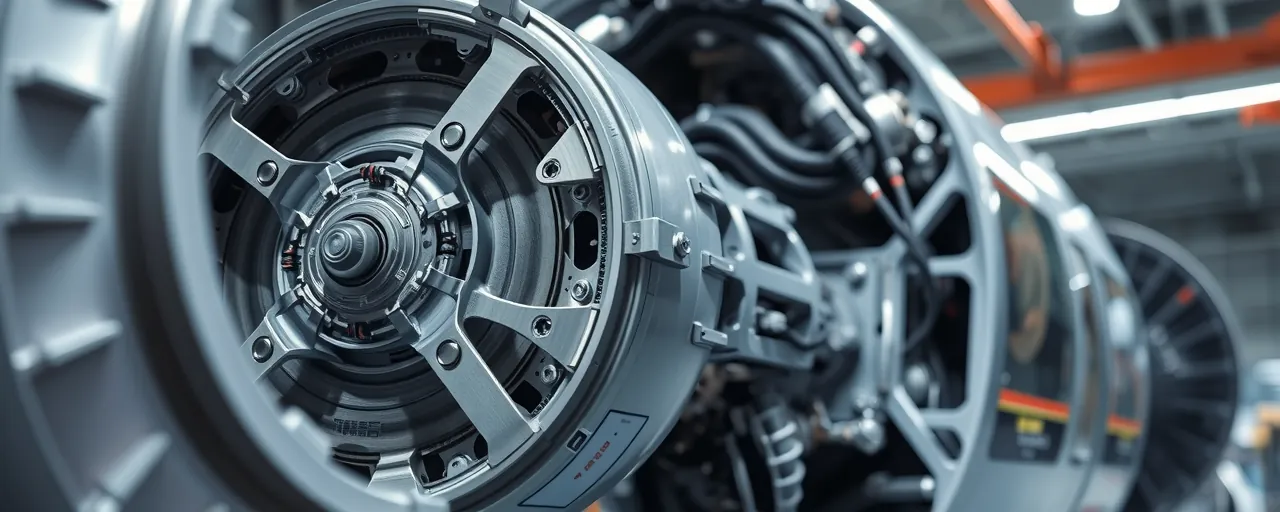A Proposal That Stirs the Nation
In May 2025, Senate Democratic Leader Chuck Schumer unveiled the Presidential Airlift Security Act, a bill that caught many by surprise. It aims to prevent any foreign-owned aircraft from serving as Air Force One, the plane that carries the U.S. president. The proposal responds to reports that President Trump considered accepting a $400 million Boeing 747-8 from Qatar for presidential travel. For everyday people, this raises a practical question: why does it matter where the plane comes from?
Air Force One represents more than just transportation; it embodies American strength and independence. The idea of a foreign jet in that role has sparked unease, touching on issues like national security, economic priorities, and global relationships. Schumer’s bill has fueled a lively debate, drawing in lawmakers, defense experts, and industry voices. It’s a discussion that reaches beyond one aircraft, asking what it takes to keep the nation safe and prosperous.
This plane is no ordinary jet. It functions as a mobile command center, equipped with secure communications, defensive systems, and midair refueling capabilities. These features allow the president to lead during emergencies, no matter the location. The prospect of using a foreign-owned aircraft has raised concerns about whether it could meet these rigorous demands. Yet some argue that global supply chains, already woven into U.S. defense, complicate the issue.
The proposal arrives amid a broader push to prioritize American-made goods in government projects, driven by policies like the Buy American Act. Schumer’s bill aligns with this trend, but it also prompts a deeper question: can the U.S. rely solely on itself in a connected world? The answers carry weight for everyone, from factory workers to policymakers.
To grasp the issue, we need to explore the security concerns, economic stakes, and diverse perspectives shaping this debate. The question of a foreign Air Force One reveals tensions that affect far more than just the president’s travel.
Security Concerns Take Center Stage
At the heart of the debate lies a critical issue: national security. Air Force One must maintain flawless communications, resist cyber threats, and withstand physical attacks. Former defense officials have cautioned that retrofitting a Qatari Boeing 747-8, at a cost exceeding $1 billion, could fall short. Essential systems, like nuclear command capabilities and counterintelligence measures, might not be fully integrated, creating potential weaknesses.
Lawmakers from both major parties have called for detailed briefings on these risks. They worry that a foreign-owned plane, even if built by an American company like Boeing, could carry hidden vulnerabilities from its time abroad. The concern is that foreign military or intelligence services might gain access to the aircraft’s design or systems, putting the president at risk.
However, some defense experts counter that these risks aren’t exclusive to foreign jets. Many U.S.-built planes incorporate parts from allied nations, such as the UK or Canada. With thorough inspections and robust retrofitting, they argue, a foreign-owned aircraft could be made secure. The challenge lies in the time and expense required, which raises doubts about whether such a plan makes sense.
Balancing Jobs and Global Ties
The debate also has a strong economic dimension. The U.S. aerospace industry, which generated $955 billion in sales in 2023, employs 2.2 million people. Schumer’s bill dovetails with initiatives like the Build America, Buy America Act, which promotes U.S.-made goods in federal projects. A domestically built and owned Air Force One could direct funds to American workers, particularly in states like Washington, where Boeing is a major employer.
Some Republican lawmakers champion this approach, arguing that foreign jets weaken the U.S. economy. They point to organizations like the Heritage Foundation, which advocate for more defense spending on American-made aircraft to bolster local industries. For them, Schumer’s bill is a step toward strengthening the nation’s manufacturing base.
In contrast, some Democratic policymakers emphasize the value of global supply chains. Companies like Airbus and BAE invest heavily in U.S. facilities, creating jobs and fostering innovation. They warn that overly strict domestic-only policies could increase costs, limit access to advanced technology, or strain relationships with allies. The aerospace sector, they argue, benefits from international cooperation.
Navigating a Complex Future
Schumer’s bill has spotlighted a multifaceted issue. The security risks of a foreign Air Force One resonate across party lines; no one wants the president flying in an unsecure plane. At the same time, the U.S. relies on global partnerships that drive its defense industry. The task is to find a path that safeguards national interests while maintaining economic and diplomatic ties.
Recent procurement reforms, such as the 2025 National Defense Authorization Act, prioritize supply chain security and streamlined acquisitions. These efforts suggest a future where the U.S. leans on domestic production but remains open to allied contributions. The bill could align with this vision, but it must address concerns about cost and practicality.
For the average American, this issue connects to everyday concerns: jobs in manufacturing, the president’s safety, and the strength of global alliances. As lawmakers debate the bill, their decisions will shape not only Air Force One but also how the U.S. balances security and economics in an interconnected world.
